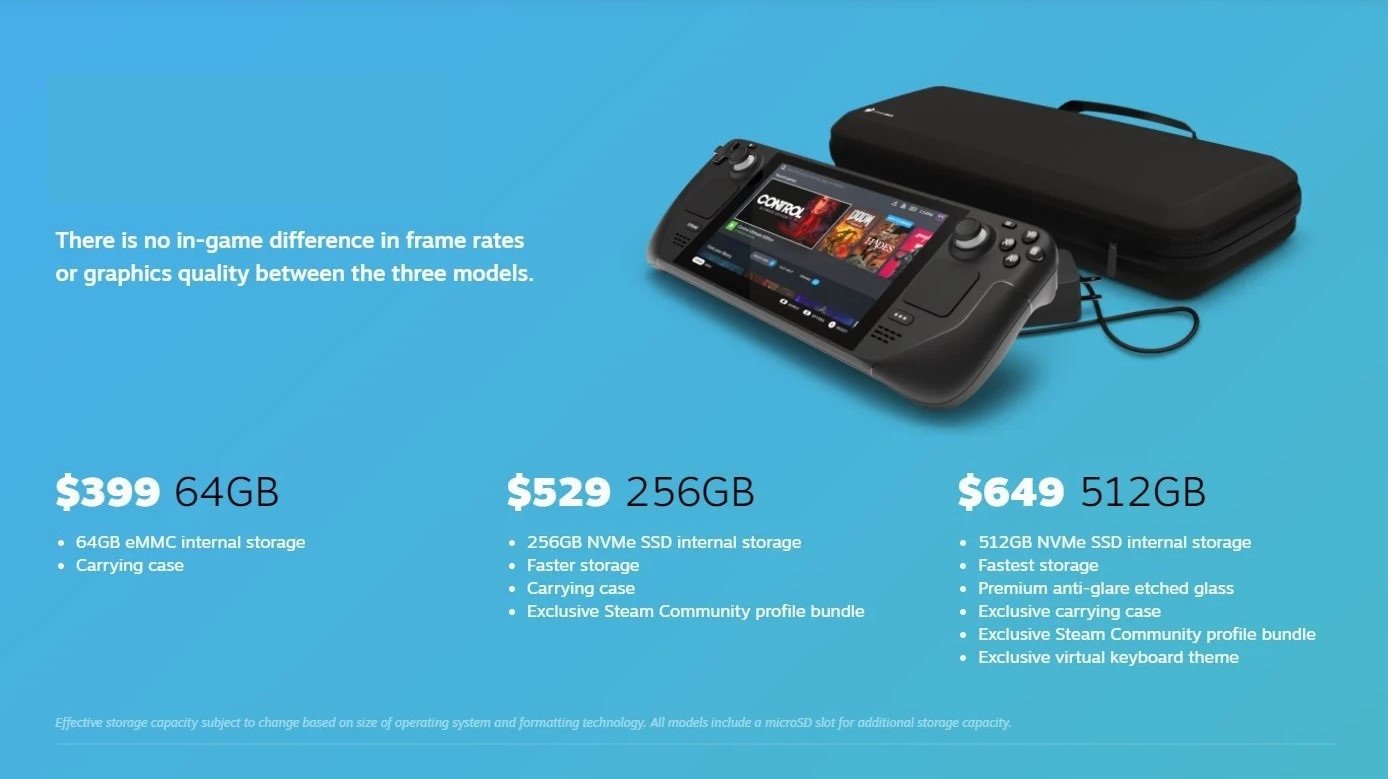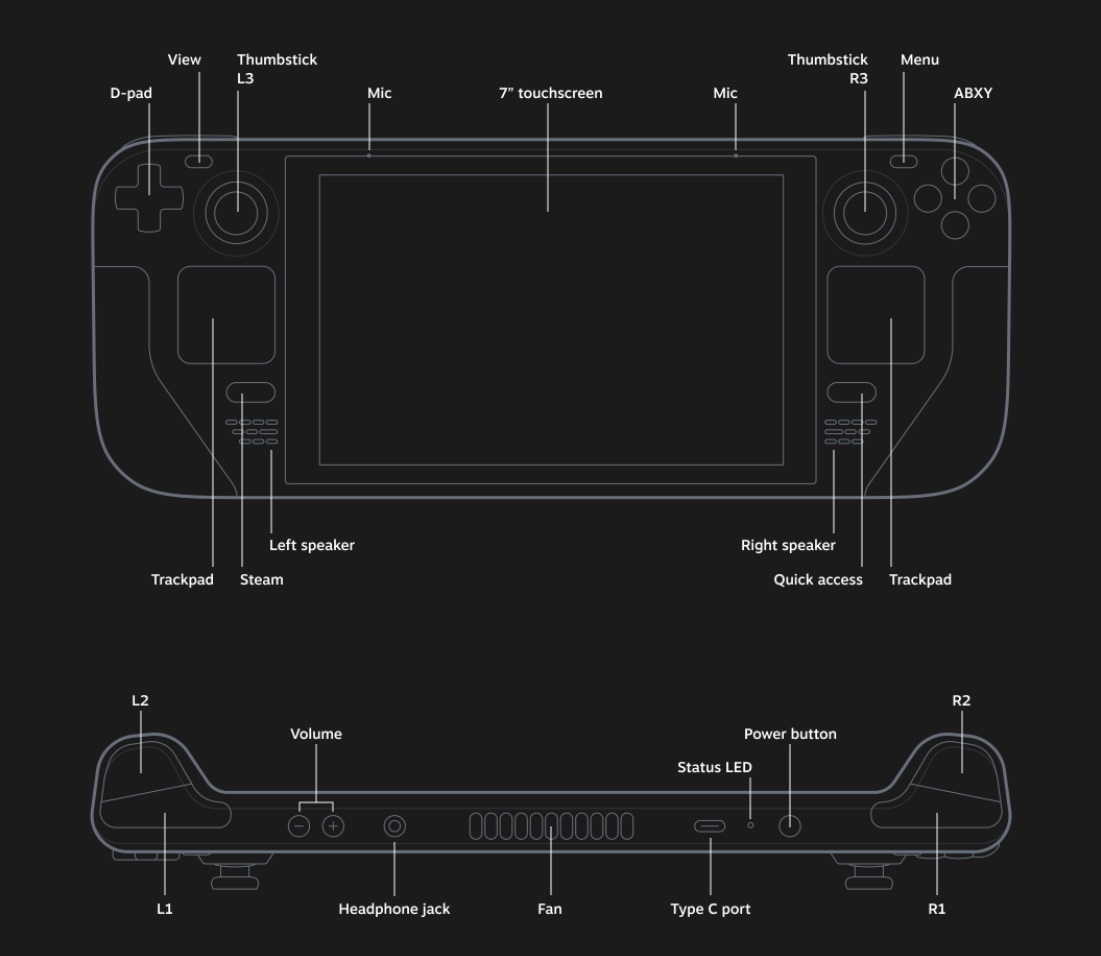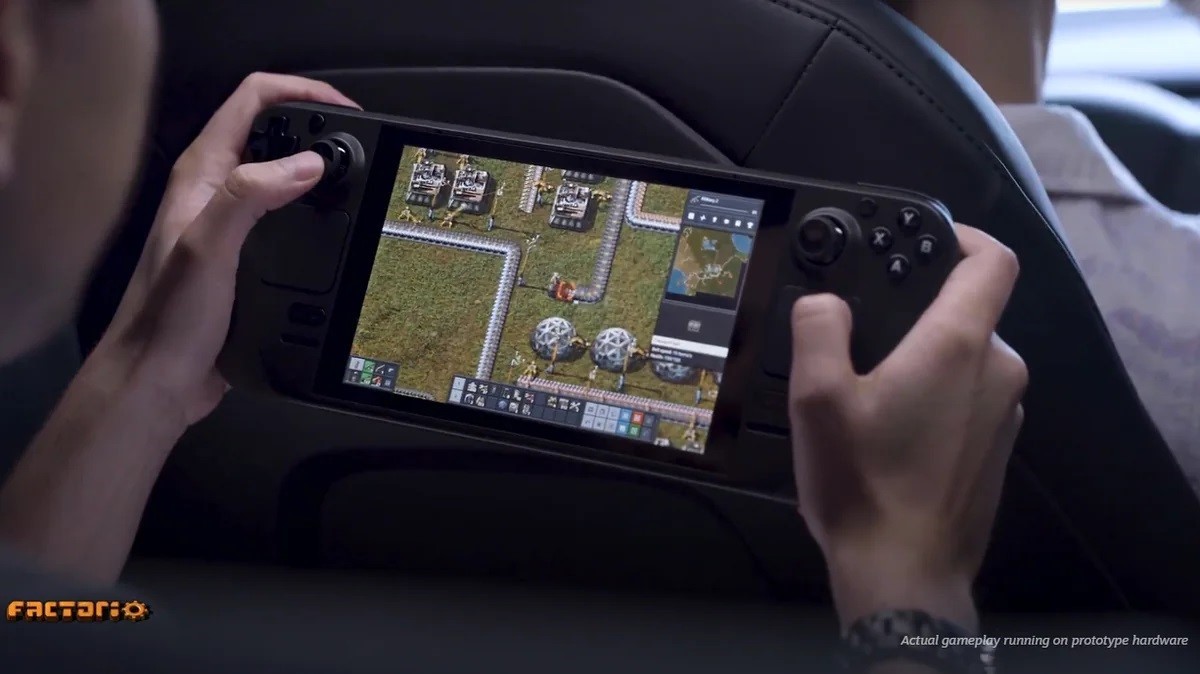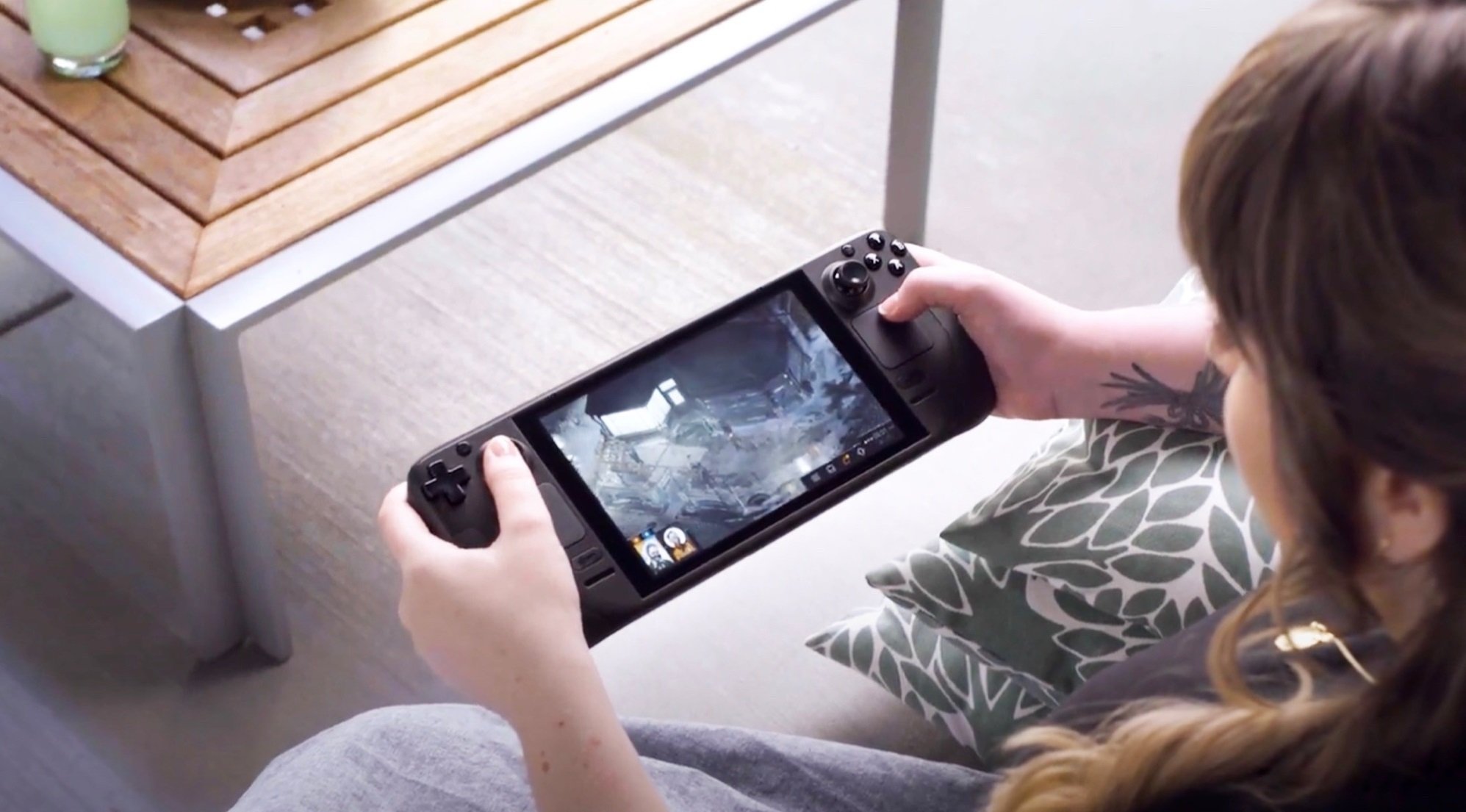As you may or may not know already, Valve isn't exactly breaking the mold with their upcoming Steam Deck. This ultra-portable gaming PC is not, in fact, even close to being the first device in this niche, but as you're about to find out, there's good reason why you probably hadn't really heard of its spiritual predecessors. That's right - today we're finding out about the comparison of Steam Deck vs other handhelds, and if Valve's entry into this corner of the market is actually any good.
As of July 2021, there are three major competitors to the Deck, roughly speaking.
These comparatively small and "underground" projects have all been successful in bringing their products to fruition. Heck, GPD has been in the business of producing pocket-sized gaming PCs for over five years now, so they know what they're about.
Most of the time, these devices are hardly ever noticed by the general public. That said, Valve's finally shining a spotlight onto this particular niche, for better or for worse. With all of these companies already present and accounted for, though, could Valve possibly still have an edge? We think that they do, actually, and we've got four arguments to back our opinion up.
Steam Deck vs Other Handhelds

Now, we're not going to dawdle too much on the Deck's actual hardware in this article. We've already covered our bases on that end with our list of best games for the Steam Deck article, be sure to give it a read. Without having access to actual hardware, there's not much else to say or do.
With that in mind, comparing the device's spec sheet on paper with those of other competitors in the niche is a thing we're interested in. Is Valve's upcoming handheld powerful enough to compete in the first place?
Naturally, sheer hardware is hardly the only consideration for a good handheld gaming device. Ergonomics, for one, is absolutely crucial, and the way that the industry-at-large responds to its release, too. Finally, there's pricing to consider, and boy has Valve managed to get the price down to a pat. Let us explain!
Specifications
Kudos to Liliputing.com for assembling their comprehensive PC gaming handheld overview. We'll rely on their spec sheets to compare and contrast the four devices we're to consider today. It's important to note right away, though, that the Steam Deck is in a class of its own, far as RAM and GPU go. Namely, it's going to pack a custom-made AMD Zen 2 / RDNA 2 accelerated processing unit - a specific combo of which we've not yet seen. Valve has noted that this is a custom solution with a GPU we've not yet seen in action.
Practically speaking, the Steam Deck is going to have a processor that's roughly comparable with that of, say, the Aya Neo, though with a significantly more capable and power-efficient GPU. To further underscore that, the Deck is also going to sport a native screen resolution of 1280 x 800 - which is more than enough for a handheld gaming device. At the same time, it's still reaping performance improvements compared to the modern baseline of 1920 x 1080 on standard PC monitors.
So, overall, Steam Deck aims to offer better hardware with superior optimization across the board. Naturally, GPD and the like will surely keep up the pace with their upcoming devices, but there's more to it than just hardware.
Ergonomics

Though the Steam Deck is going to be substantially heavier than some of the most popular gaming handhelds on the market with its half-a-kilo chassis, we expect it to handle favorably still. Namely, consider the large, hefty grips featured on the device's sides. Most other gaming handhelds are flat or otherwise unwieldy. This is not going to be a problem according to people who've already handled the Steam Deck.
Industry Backing
Valve's Steam might have received some competition over the past couple of years, but it's still the premium PC game store. This means that Valve has an enormous amount of pull with game publishers and developers - from AAA all the way to indie. Now, this may not materialize into an actual pro for the device, but we're reasonably sure that Valve could start asking developers for further optimization so that their games work well on the Deck. Not everyone would agree, for sure, but not everyone needs to.
If you, as a game developer, want people to play your game over others on the Steam Deck, you're probably going to want to invest time in making it run just a bit better on the go. For a large portion of Valve's Steam userbase, the Deck is an all-new market. No other PC gaming handheld has the same amount of sway.
Pricing
Finally - the pricing. We've seen people criticize Valve for making the baseline Steam Deck a "whopping" $399. We cannot help but feel that this take is created in a vacuum, really. If you're unaware of the prices these devices usually reach, let us help:
- GPD Win 3 - $1040 - $1215
- Aya Neo - $925 - $1015
- OneXPlayer - $1059 - $1199
No, really. So the most expensive version of the Steam Deck is still going to be far cheaper than any other device in this niche. Make no mistake - Valve is selling these at a loss. Should the average consumer care, though? Of course not!
Overall, comparing the Steam Deck vs other gaming handhelds paints a really interesting picture. Here, we're going to be getting a device that's in all likelihood far more powerful than anything else on the market in this niche, at a far lower price. Note, though, that the Steam Deck will offer less storage space. It taps out at 512 GB maximum, though it does still offer a MicroSD expansion slot if you need it.
Is Valve Onto Something Here?

So far, the main problem with PC gaming handhelds has been the fact that they were expensive. As in - prohibitively expensive. Valve has side-stepped this issue to carve out a big chunk of the market right off the bat, and we think it's going to work. The groundwork for the Deck's success was put down way back, during the Steam Machine fiasco. Proton sprung up as an all-in-one solution to gaming on Linux, and it only came up when Valve realized that Linux still had a long way to go before gamers at large could accept it as a Windows replacement.
There simply wasn't a market for Steam Machines, but the relative success of devices such as Aya Neo shows that - yes - people do want an affordable PC gaming handheld. Valve could very well succeed where nobody else could, especially with SteamOS 3.0.
Should we actually compare the Steam Deck to Nintendo Switch?
Surely you've noticed by now that our comparison of the Steam Deck vs other gaming handhelds has avoided Nintendo Switch up until now. That's because - apparently - they're not vying for the attention of the same profile of gamers. According to Valve, the idea of the Steam Deck has been around for a long while - perhaps even longer than the Switch has existed. Valve wishes to offer a portable solution for gamers that wish to take their existing Steam library on the go. Not necessarily to lure in people who'd otherwise be playing Super Mario and Zelda games on a Nintendo handheld.
We tend to agree with this assessment, too. The Steam Deck is going to be a PC handheld that's capable of running anything on Steam natively at a minimum of 30 FPS. Sure, emulators will work on it, but the Deck is going to be the ultimate solution if you don't want to invest in an all-new gaming ecosystem.
Final Thoughts

It's no secret that the crew here at 2Game is really excited about the prospect of playing proper, full-featured, full-blooded PC games on the go. The Steam Deck looks like it could pull this gaming niche out of obscurity once and for all, and we can't wait to see what Valve has got in store for us, come early 2022.
We'll have plenty more information and coverage for the Steam Deck in the coming weeks and months. In the meantime, though, the bottom line is simple - Steam Deck vs other PC handhelds? The Deck is bound to win out, from what we know so far.
As you may or may not know already, Valve isn’t exactly breaking the mold with their upcoming Steam Deck. This ultra-portable gaming PC is not, in fact, even close to being the first device in this niche, but as you’re about to find out, there’s good reason why you probably hadn’t really heard of its spiritual […]